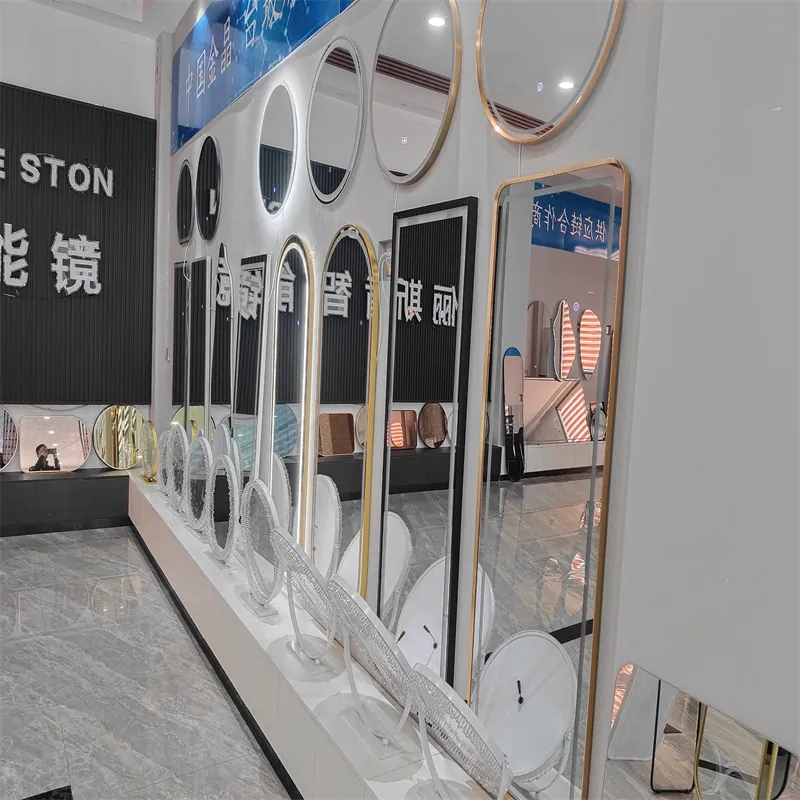Dec . 07, 2024 01:45 Back to list
laminated insulated glass units
Understanding Laminated Insulated Glass Units Benefits and Applications
Laminated insulated glass units (LIGUs) have emerged as a preferred choice in modern construction due to their impressive structural integrity and energy efficiency. By combining the best features of laminated glass and insulated glass units, LIGUs cater to various architectural needs while ensuring safety, comfort, and aesthetic appeal. This article delves into the composition, advantages, and applications of laminated insulated glass units, providing insight into why they are becoming increasingly popular in both residential and commercial buildings.
Composition of Laminated Insulated Glass Units
LIGUs are essentially a combination of two main technologies laminated glass and insulated glass. Laminated glass consists of two or more layers of glass bonded together with an interlayer, usually made of polyvinyl butyral (PVB) or ethylene-vinyl acetate (EVA). This interlayer not only holds the glass layers together in case of breakage, providing safety, but also reduces noise transmission and UV radiation.
On the other hand, insulated glass, or double glazing, involves two panes of glass with a sealed air space in between, creating a barrier that enhances thermal insulation. The space is often filled with argon or krypton gas for improved energy efficiency. By encapsulating these two features, LIGUs offer a multitude of benefits that stand out in the marketplace.
Benefits of Laminated Insulated Glass Units
1. Enhanced Safety and Security One of the most significant advantages of LIGUs is their ability to resist impact. The laminated structure prevents the glass from shattering upon impact, making it an ideal choice for areas where safety is a concern, such as schools, hospitals, and commercial buildings. In case of breakage, the glass remains intact, minimizing the risk of injury.
2. Improved Sound Insulation Noise pollution is an ever-growing concern in urban areas. LIGUs are excellent at dampening sound due to their laminated construction, which reduces the transmission of sound waves. This makes them a perfect fit for buildings located in noisy environments, ensuring occupants enjoy a peaceful indoor atmosphere.
laminated insulated glass units

3. Energy Efficiency With rising energy costs and increasing awareness of environmental issues, energy efficiency has become a critical factor in building design. LIGUs contribute to better insulation, helping to maintain comfortable indoor temperatures. By minimizing heat loss in winter and reducing heat gain in summer, they can significantly decrease heating and cooling costs.
4. UV Protection The interlayer used in laminated glass blocks a substantial amount of harmful UV radiation, protecting furnishings and interiors from fading and damage. This feature is particularly valuable in residential applications, where maintaining the aesthetic quality of interiors is essential.
5. Aesthetic Versatility LIGUs can be produced in various finishes, colors, and textures, making them adaptable to any architectural style. Whether it's a sleek modern office building or a charming residential home, laminated insulated glass units can enhance the overall aesthetic appeal while providing practical benefits.
Applications of Laminated Insulated Glass Units
The versatility of LIGUs allows them to be utilized across various sectors. In residential construction, they are often used for windows, sliding doors, and glass facades, combining elegance with functionality. In commercial settings, they can be found in storefronts, atriums, and conference rooms, providing both transparency and security.
Additionally, LIGUs are increasingly being incorporated into energy-efficient building designs and green construction practices, aligning with sustainability goals and standards.
Conclusion
In conclusion, laminated insulated glass units stand out as a superior choice for modern architecture, offering a blend of safety, aesthetic appeal, and energy efficiency. Their growing popularity in both residential and commercial applications speaks to their numerous benefits, making them a worthy investment for any construction project. As technology continues to advance, the potential for LIGUs will only increase, leading to even more innovative applications in the future. Embracing LIGUs might just be the step towards a safer, more energy-efficient building environment.
-
Safety and Style with Premium Laminated Glass Solutions
NewsJun.24,2025
-
Reinvents Security with Premium Wired Glass
NewsJun.24,2025
-
Premium Float Glass Line for Modern Architecture
NewsJun.24,2025
-
Low Emissivity Glass for Energy-Efficient Architecture
NewsJun.24,2025
-
High-Performance Insulated Glass Solutions for Modern Architecture
NewsJun.24,2025
-
Elevates Interior Style with Premium Silver Mirror
NewsJun.24,2025
Related PRODUCTS














